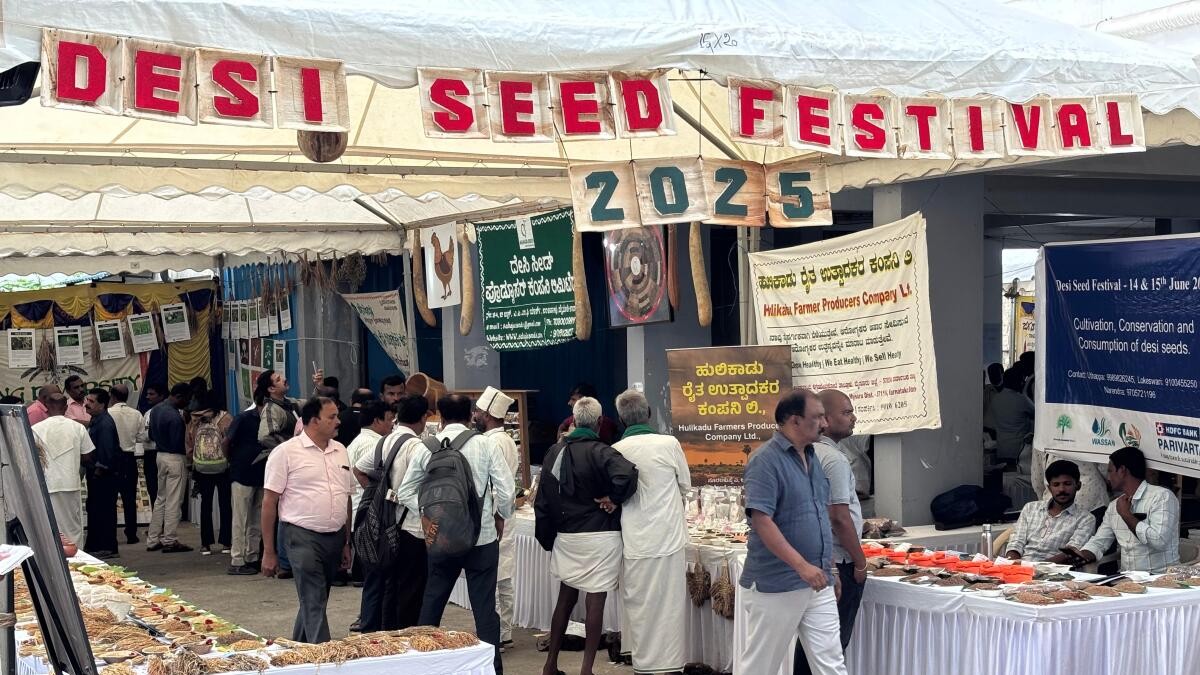
Desi seed festival.
Credit: DH photo
The vital role of indigenous seeds in agriculture took center stage at the Desi Seed Festival, organised by the Institution of Agricultural Technologists (IAT), and Sahaja Samrudha, the two-day event, held at the IAT premises.
The festival, inaugurated by Trilochan Mohapatra, Chairman of the Protection of Plant Varieties and Farmers’ Rights Authority (PPVFR), brought together seed conservators, farmer scientists, agricultural enthusiasts, and consumers from across the state.
Over 1,500 indigenous seed varieties, encompassing rice, millets, pulses, tubers, leafy greens, and vegetables, are being showcased, alongside wild plant varieties preserved by tribal communities for generations.
Mohapatra emphasised the legal protection available to farmers for their seed varieties, similar to property rights. He urged farmers to register their unique varieties with the PPVFR Authority, highlighting that such registration allows for legal action if a registered variety is used without permission and can be transferred across generations. He also stressed the collaborative responsibility of government and non-governmental organisations in conserving these "national properties" in gene banks.
Suresh SV Vice-Chancellor of GKVK, advocated for the extension of Geographical Indication or GI tags, currently applicable to horticultural crops, to agricultural varieties. Dineshkumar Agarwal, Registrar General, PPVFR, reassured farmers about their rights to seed access, emphasising the free and doorstep registration service offered by the authority. He revealed that out of nearly 20,000 applications received from all over the country since the authority's inception in 2005, 60% are farmer varieties. Despite a surge in applications in recent years, Karnataka's overall contribution remains low with only 307 applications, highlighting a call for increased awareness activities.
The festival also recognised and facilitated six individuals who have significantly contributed to conserving desi seed varieties and popularising seed revolution in the state.